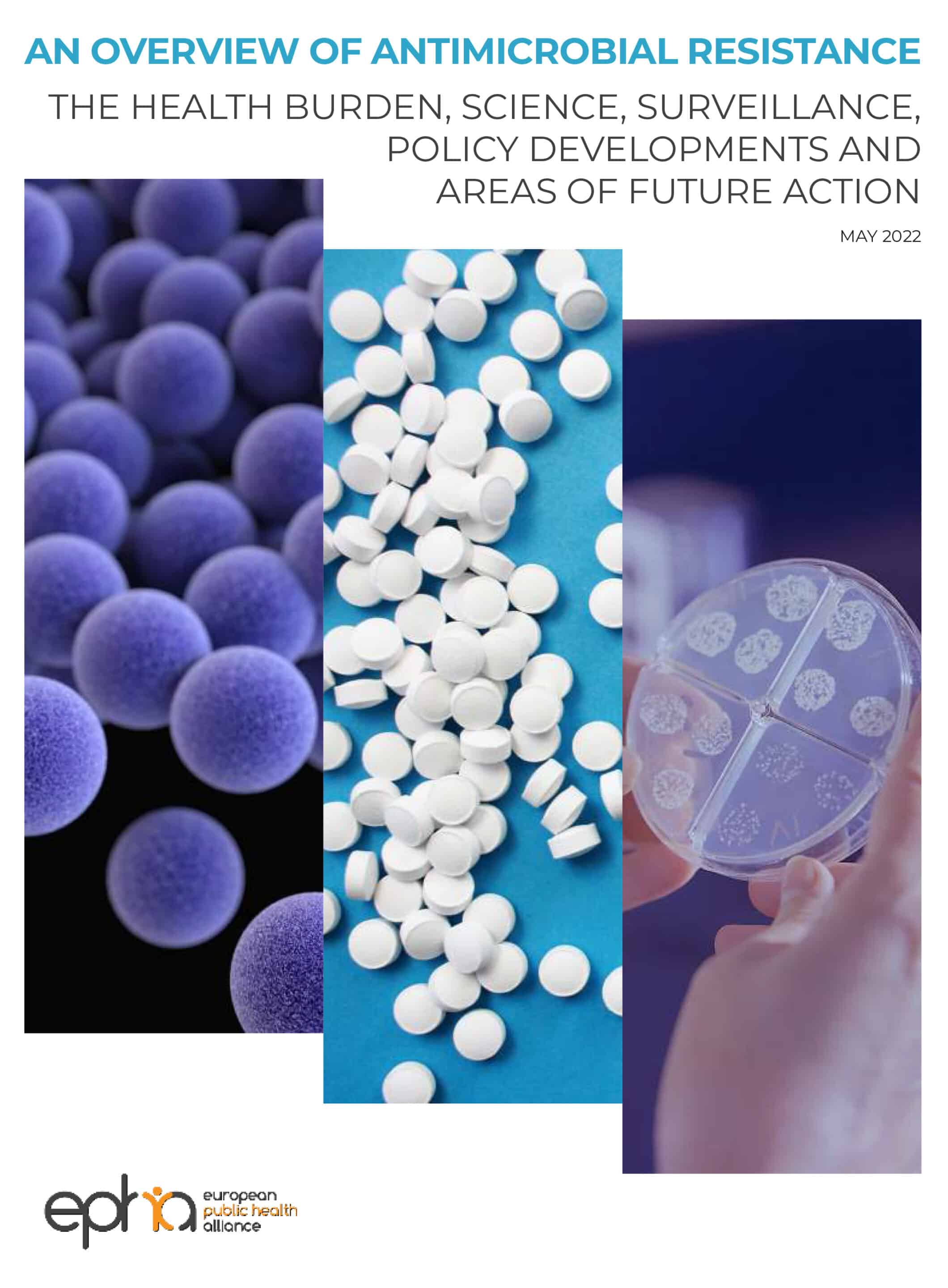By Kirsty Douglas – Policy Assistant for Global Public Health
Antimicrobial resistance (AMR) is an ongoing public health crisis, with a recent report associating bacterial AMR with 4.95 deaths per year worldwide, including 1.27 million attributable deaths. This is a major concern for health professionals, who are already struggling to treat antimicrobial resistant infections, as well as its threat to the outcomes of routine medical interventions, from surgery to chemotherapy, and increased risk for individuals at greater risk of infection, including pre-term infants and the elderly. However, this issue is not confined to the hospital setting, as AMR can develop and spread between humans, animals, and the environment, it therefore requires a One Health approach – transdisciplinary, multisectoral, and encompassing all levels of society – to address it.
Recognising this need for collaboration between different sectors and specialities, EPHA shares its ‘setting the scene’ paper entitled ‘AN OVERVIEW OF AMR: The health burden, science, surveillance, policy developments and areas of future action.’ This document presents a concise account of AMR knowledge and developments in the areas of health, science, surveillance, and recent international and European policy activity relating to human, animal, and environmental health. The intention of this overview then is to enable those with an interest, working in any relevant area, to gain a mutual understanding on the various aspects of and developments around AMR and assist in cross-sectoral and discipline dialogue, to tackle this issue as effectively as possible.

